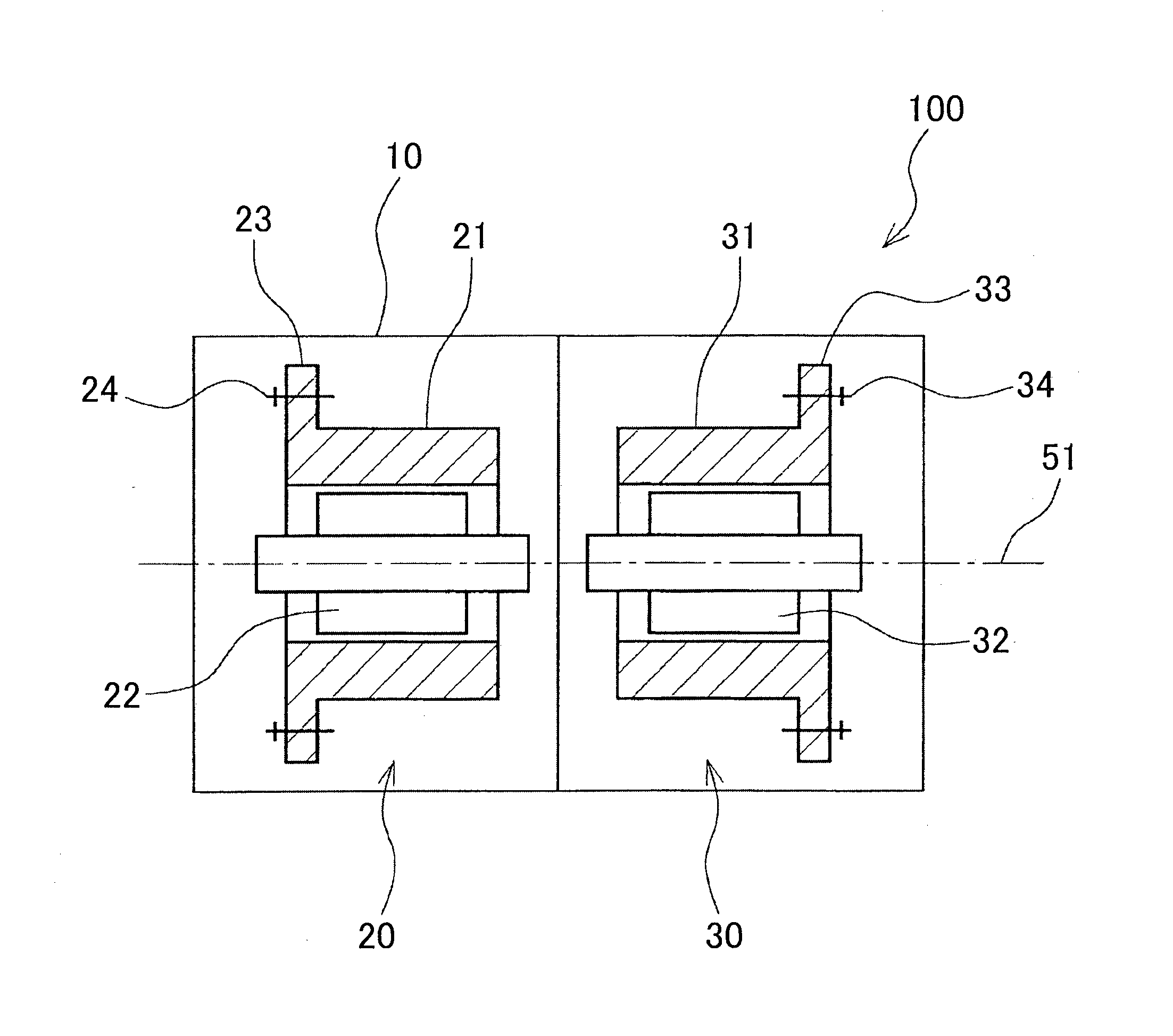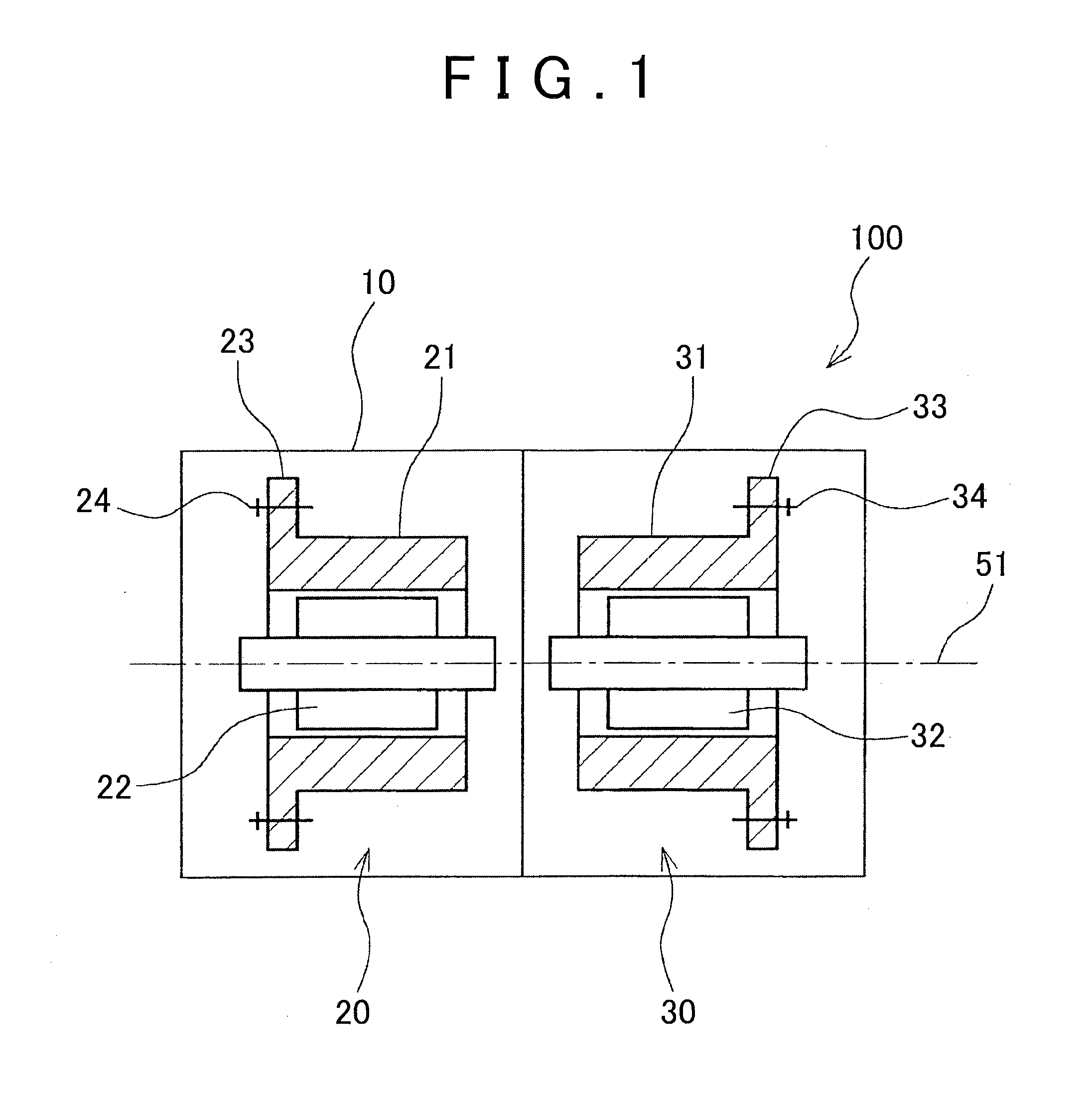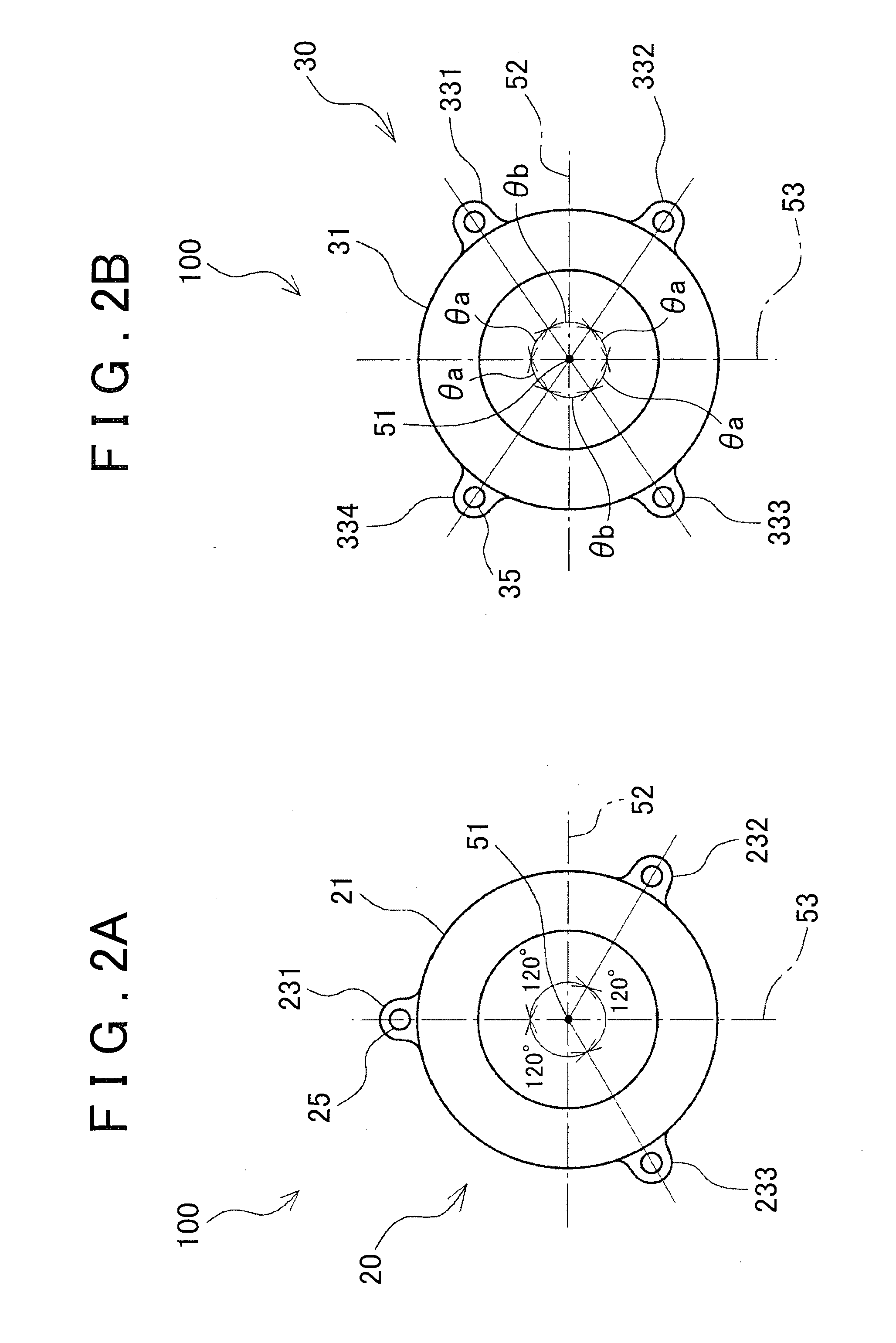Drive device for electric vehicle
a technology for electric vehicles and drive devices, applied in electric devices, mechanical energy handling, transportation and packaging, etc., can solve problems such as noise, vibration and noise, vibration and noise, etc., and achieve the effect of reducing vibration and noise caused by electric vehicle drive devices that include a plurality of motor generators
- Summary
- Abstract
- Description
- Claims
- Application Information
AI Technical Summary
Benefits of technology
Problems solved by technology
Method used
Image
Examples
first embodiment
[0018]As shown in FIG. 2A, three lugs 231 to 233 that are used to fasten the first stator 21 to the casing 10 are provided at intervals of 120° in the circumferential direction. The lugs 231 to 233 are provided with respective holes 25. The fixation bolts 24 are inserted into the respective holes 25 to be fastened to the casing 10. In FIG. 2, reference numeral 52 denotes a center line in the horizontal direction. In the first embodiment, as shown in FIG. 2A, the first lug 231 is disposed at a position above the first stator 21 through which a center line 53 in the vertical direction passes. The second lug 232 is disposed at a position shifted by 120° from the first lug 231 clockwise in the circumferential direction of the first stator 21. The third lug 233 is disposed at a position shifted by 120° from the second lug 232 clockwise in the circumferential direction of the first stator 21. Meanwhile, as shown in FIG. 2B, the second stator 31 includes four lugs 331 to 334. The lugs 331 ...
second embodiment
[0022]In the second embodiment, as shown in FIG. 3A, the first lug 231 of the first stator 21 is disposed at a position above the first stator 21 through which the center line 53 in the vertical direction passes. The second lug 232 and the sixth lug 236 are disposed at positions shifted by 30° from the first lug 231 clockwise and counterclockwise, respectively, in the circumferential direction of the first stator 21. The fourth lug 234, the fifth lug 235, and the third lug 233 are disposed opposite to the first lug 231, the second lug 232, and the sixth lug 236, respectively, with respect to the center axis 51. Thus, the interval between the first lug 231 and the second lug 232 in the circumferential direction, the interval between the first lug 231 and the sixth lug 236 in the circumferential direction, the interval between the fourth lug 234 and the fifth lug 235 in the circumferential direction, and the interval between the fourth lug 234 and the third lug 233 in the circumferent...
PUM
 Login to View More
Login to View More Abstract
Description
Claims
Application Information
 Login to View More
Login to View More - R&D
- Intellectual Property
- Life Sciences
- Materials
- Tech Scout
- Unparalleled Data Quality
- Higher Quality Content
- 60% Fewer Hallucinations
Browse by: Latest US Patents, China's latest patents, Technical Efficacy Thesaurus, Application Domain, Technology Topic, Popular Technical Reports.
© 2025 PatSnap. All rights reserved.Legal|Privacy policy|Modern Slavery Act Transparency Statement|Sitemap|About US| Contact US: help@patsnap.com



